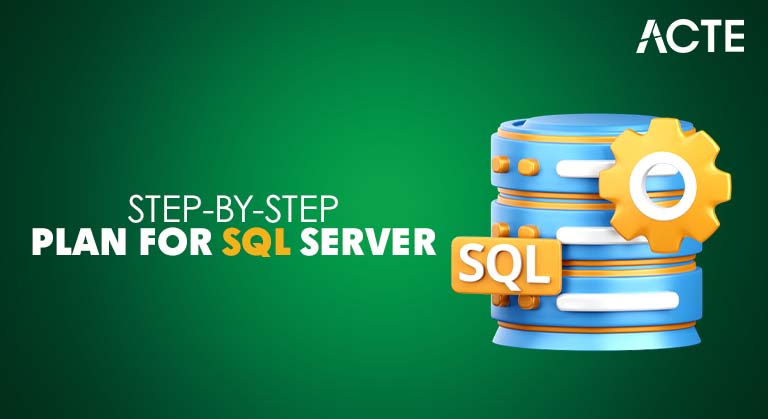
- Importance of Certification
- Certification Levels
- Exam Topics
- Preparation Resources
- Recommended Learning Path
- Practice Tests
- Registration Process
- Benefits of Certification
- Career Impact
- Renewal and Updates
- Summary
Importance of Certification
In the rapidly evolving field of information technology, certifications have become essential credentials that validate professional expertise. Database Training highlights the importance of SQL certification, which is particularly crucial because SQL (Structured Query Language) is the backbone of data management in nearly all relational database systems. Organizations rely heavily on databases to store, retrieve, and manipulate data, and professionals proficient in SQL are in high demand. Holding a recognized SQL certification demonstrates that an individual has the required skills to manage data efficiently, optimize queries, ensure data integrity, and maintain database security.

Moreover, certifications provide a competitive edge when applying for jobs. They prove to employers that candidates possess not only theoretical knowledge but also practical capabilities verified through standardized examinations. This is critical in fields like data analytics, software development, database administration, and business intelligence, where managing data accurately and swiftly is essential for business success. Certification also fosters professional growth. It motivates individuals to keep pace with evolving technologies, learn best practices, and deepen their understanding of database systems. The demand for data-driven decision-making in businesses worldwide means certified SQL professionals often enjoy better job security, higher salaries, and expanded career opportunities.
Do You Want to Learn More About Database? Get Info From Our Database Online Training Today!
Certification Levels
SQL certifications are offered by multiple vendors, with each providing tiered levels based on skill and experience. Understanding the levels of Data Independence in DBMS can help candidates select the right certification that aligns with their current knowledge and career aspirations, ensuring a more targeted and effective learning path. Entry-Level Certifications such as Microsoft DP-900: Azure data fundamental, Oracle database SQL Certified Associate, and MySQL database administrator/Developer Associates provide basic knowledge for beginners. They introduce major database concepts and basic SQL query skills. As professionals proceed, intermediate-level certificates such as Microsoft DP-300, Oracle database SQL specialist, and MySQL developers allow certification complex questions, performance improvement and deep understanding of advanced database management techniques. Advanced-level certificate including Microsoft Certified: Azure Database Administrator Associate, Oracle Certified Professional, and Microsoft Certified: Data Engineers, Focus on experienced professionals who manage the enterprise-level database environment. They confirm advanced skills in integration with database administration, security and large data analytics. This passage of certification helps database professionals to make specializations systematically. This guides them to a basic understanding of complex enterprise solutions, supporting the ongoing development and technical skills in a changing technology environment.
Exam Topics
The specific exam topics differ among vendors, but core areas typically include:
Database Fundamentals
- Types of databases: Relational, non-relational (NoSQL)
- Database architecture concepts: Layers and components of database systems
- Keys: Primary, foreign, candidate keys for data relationships
- Normalization and denormalization: Structuring data to reduce redundancy or improve performance
SQL Querying
- Basic CRUD operations: SELECT, INSERT, UPDATE, DELETE
- Joins: INNER, LEFT, RIGHT, FULL, CROSS for combining tables
- Aggregations: GROUP BY, HAVING, COUNT, SUM, AVG
- Subqueries and nested queries: Advanced filtering and logic
- Set operations: UNION, INTERSECT, EXCEPT for combining results
Data Integrity and Constraints
- Data types: Integer, varchar, date, etc.
- Constraints: UNIQUE, CHECK, NOT NULL, DEFAULT
- Referential integrity: Enforced via foreign keys
Advanced SQL Concepts
- Views and materialized views: Virtual and precomputed tables
- Stored procedures and functions: Encapsulated reusable logic
- Triggers: Automated responses to data events
- Transactions and ACID properties: Ensures reliability and consistency
- Indexing strategies and query optimization: Improve performance and efficiency
Database Security
- User roles and permissions: Control access to data and operations
- Authentication and authorization: Identity management and access control
- Encryption basics: Securing data at rest and in transit
Database Administration
- Backup and recovery strategies: Protect against data loss
- Monitoring and performance tuning: Optimize system health and query speed
- Replication and high availability: Ensure uptime and redundancy
- SQL in 10 Minutes, Sams Teach Yourself by Ben Forta: A beginner-friendly, concise introduction.
- Learning SQL by Alan Beaulieu: Comprehensive guide with practical examples.
- SQL Performance Explained by Markus Winand: Deep dive into query optimization techniques.
- Coursera: Offers “SQL for Data Science” and “Databases and SQL for Data Science.”
- Udemy: Popular courses include “The Complete SQL Bootcamp” by Jose Portilla.
- Microsoft Learn: Free tutorials for Azure-related certifications.
- Oracle University: Official training for Oracle SQL certifications.
- DB Fiddle, SQLZoo, LeetCode: Interactive platforms for SQL query practice.
- HackerRank: SQL challenges ideal for interview preparation.
- Official documentation: Oracle, MySQL, SQL Server, PostgreSQL reference materials.
- Community forums: Stack Overflow, DBA Stack Exchange.
- Blogs and YouTube tutorials: Great for real-world insights and best practices.
- Local databases: Practice using MySQL, PostgreSQL, or SQL Server setups.
- Cloud sandboxes: Explore environments via Azure or Oracle Cloud for hands-on training.
- Create account: Sign up for a free Microsoft Learn account.
- Select exam: Choose the desired certification and associated exam.
- Schedule exam: Book via Pearson VUE test centers or online proctoring.
- Pay fee: Complete payment for the exam.
- Register: Sign up through Oracle Certification portal.
- Purchase: Buy vouchers or exam packs for your certification path.
- Schedule exam: Choose an authorized Pearson VUE center or online option.
- Exam guidelines: Adhere to Oracle’s identification and conduct policies.
- Oracle-managed: As MySQL is Oracle-owned, follow Oracle’s certification procedures.
- Exam process: Purchase and schedule through Oracle platforms similarly.
- Skill validation: Confirms your database knowledge and SQL proficiency.
- Career advancement: Enhances credibility in the job market and opens doors to better job roles and salary increments.
- Confidence boost: Prepares you to handle real-world database challenges effectively.
- Qualified hires: Ensures hiring of certified professionals with proven capabilities.
- Training efficiency: Reduces onboarding and upskilling time.
- Team productivity: Improves overall database management and operational quality.
- Global credibility: Certifications from Microsoft, Oracle, and MySQL are recognized internationally.
- Career mobility: Valuable for professionals seeking global opportunities.
- Validity period: Most role-based certifications expire after one year.
- Renewal method: Free online renewal assessments help maintain active certification status.
- Expiration policy: Many certifications have no mandatory renewal period.
- Version updates: Newer certification versions often replace older ones.
- Learning emphasis: Continuous skill development is strongly encouraged.
- Stay current: Follow official channels, attend webinars, and explore new certifications regularly.
- Advance strategically: Pursue advanced certifications to increase domain expertise and career impact.
Would You Like to Know More About Database? Sign Up For Our Database Online Training Now!
Preparation Resources
To prepare effectively for SQL certification exams, candidates should combine theoretical knowledge with hands-on practice in Data Modelling, ensuring they understand how to structure, relate, and optimize data within relational systems. Key resources and strategies include mock tests, interactive tutorials, and real-world query exercises to reinforce learning.
Books:
Online Courses:
Practice Platforms:
Documentation & Forums:
Labs and Virtual Environments:
Recommended Learning Path
For the aspiration of database professionals, SQL requires a clear passage for learning that gradually creates technical skills. Database Training begins with basic relational database concepts and simple SQL syntax, laying the groundwork for deeper understanding and practical application. The learners start by elasticity to select statements, filtering and sorting techniques. They practice simple engagement and collected work through mini projects. As skills progress at intermediate levels, professionals detect more advanced query techniques such as subquests, common table expressions and window functions. They also see important database design principles, such as generalization. It is necessary to achieve proficiency with stored procedures, trigger, sequencing and execution plans during this stage. Advanced levels require a deep understanding of complex database management. This involves studying complex areas such as transactions, concurrent controls and locking mechanisms. Safety management, backup and recovery strategies, and replication techniques become important. The practitioners intensified their skills to challenge the real -world scenarios and take a mock certification exam. This step-by-step approach supports the strong growth of database expertise, which helps professionals handle more complex technical challenges with confidence and skills.
To Earn Your Database Certification, Gain Insights From Leading Blockchain Experts And Advance Your Career With ACTE’s Database Online Training Today!
Practice Tests
Preparation for an expert examination in SQL Primary Key concepts requires a clear strategy built on regular practice tests, targeted revision, and hands-on query optimization to ensure mastery of relational integrity and indexing techniques. These testing tests help to create confidence and familiarity with formats. The platforms such as Whizlabs, Measup, PrepAway, and TestPrepTraining offer simulated exams that provide useful insight into exam patterns and question structures. Supports candidates in choosing an enterprise data strategy by encouraging them to carefully review their mistakes, strengthen weak areas, and build both speed and accuracy through consistent practice. By working continuously with these fake examinations, the candidates can mimic the status of the actual examination, identify gaps in their knowledge, and develop the skills necessary to perform well under pressure.
Registration Process
The certification process varies slightly between certifying authorities, but generally includes the following steps:
Microsoft Certifications

Oracle Certifications
MySQL Certifications
Preparing for a Database Job? Have a Look at Our Blog on Database Interview Questions and Answers To Ace Your Interview!
Benefits of Certification
Benefits of SQL Certification:
For Individuals
For Employers
Industry Recognition
Career Impact
Database Training includes essential topics like Data Control Language (DCL) in SQL, empowering professionals with skills that open doors to diverse industries, specialized roles, and strong earning potentia especially for those with certification. These roles include database administrators who manage important database systems, data analysts who extract valuable insights, SQL developers who create complex questions, and business intelligence developers who build detailed data models and dashboards. The career path is particularly encouraging for SQL experts. Entry level professionals can expect ₹ 4-6 LPA in India or about $ 60,000 per year in the U.S.A. Mid-level professionals can make 7–12 LPAs or $ 85,000, while senior physicians can earn ₹ 15+ LPA or more than $ 110,000. Additionally, obtaining a professional certificate can promote career growth and increase earning capacity, making SQL a very attractive skill in today’s data-centered job market.
Renewal and Updates
Database Management Benefits include the importance of keeping certifications current as technologies evolve, with different vendors following distinct renewal policies to ensure professionals stay aligned with industry standards.
Microsoft
Oracle
Best Practices
Future Trends and Conclusion
SQL certifications provide a structured, recognized pathway to mastering the critical skill of database management and querying. They enhance career prospects by validating knowledge, boosting confidence, and opening job opportunities globally. Candidates pursuing Database Training should select certification levels based on their current knowledge and career goals, and prepare using diverse resources, hands-on practice, and mock tests to ensure success. Registration and exam fee details vary, so proper planning is essential. Ultimately, investing in SQL certification is investing in a future-proof career in the data-driven world. As data continues to shape business strategies, certified SQL professionals will remain highly sought after.


